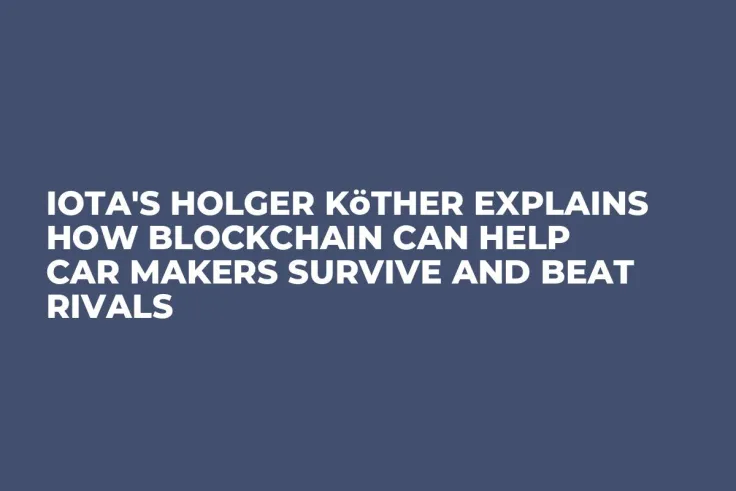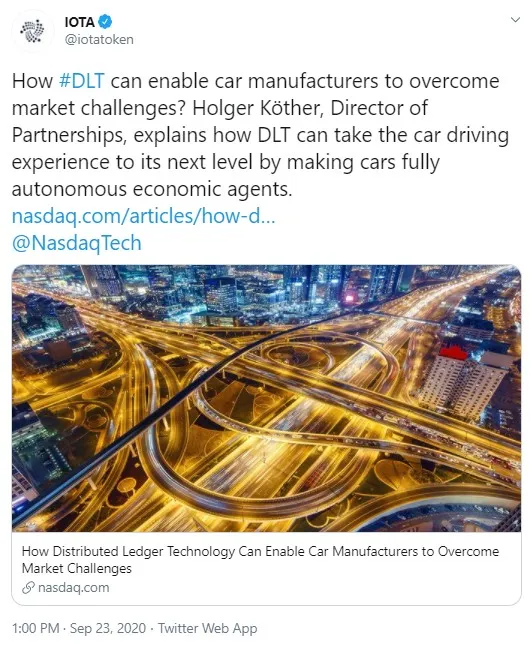
IOTA's Director of Partnerships, Holger Köther, has published an article in which he described the modern challenges that car makers face in the market due to the emergence of semi-automated cars.
He also explained how blockchain can help them overcome those challenges and gain competitive advantages against rivals.

Something big is coming and challenges are rising
Holger Köther reminded readers about the growing appearance of semi-automated vehicles, as well as a new generation of car buyers who are on friendly terms with tech innovation.
They want tech innovation to be integrated everywhere and expect to find it in cars. This brings new challenges to automobile makers, Köther believes, including the need to integrate phones that can directly connect to cars, Wi-Fi, etc.
As technologies evolve and become integrated in everyday life, governments are going to implement stricter regulations and standards around this fast-developing industry.
Car makers, both those of economy and luxury cars, will have to offer a lot more services to their customers after the purchase of the car, writes Köther.
How blockchain can help
According to IOTA's Director of Partnerships, DLT can record all data on all transactions and events that happen to the car, starting from its production to its destruction when it is no longer usable.
Ownership can be verified via blockchain, it can record all servicing sessions and car accidents and allow for quick software upgrades.
With integrated car wallets, vehicles can make payments, including usage-based insurance. Canada-based company bIOTAsphere is busy developing this technology, meaning that cars will pay insurance depending on highway conditions and how the owner drives it, based on information detected by its 200 sensors and recorded on the blockchain.
How to choose blockchain for a car
Holger Köther states that, if a car is equipped with a blockchain, it has to be highly scalable and must not take a fee for every single transaction or take up too many computational resources from the onboard computer of the car.
Also, it must be compatible with the vehicle's operating system and hardware and all the infrastructure around: traffic lights, toll booths and more.
Another crucial thing, according to Köther, is that car owners must be able to choose whether to share their car's data, restrict its sharing ability or encrypt it for safety.

 Dan Burgin
Dan Burgin Godfrey Benjamin
Godfrey Benjamin Caroline Amosun
Caroline Amosun Tomiwabold Olajide
Tomiwabold Olajide